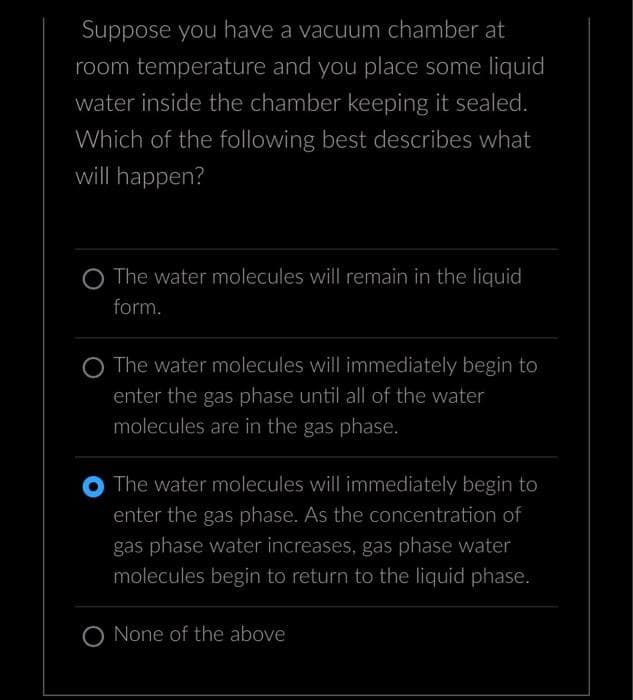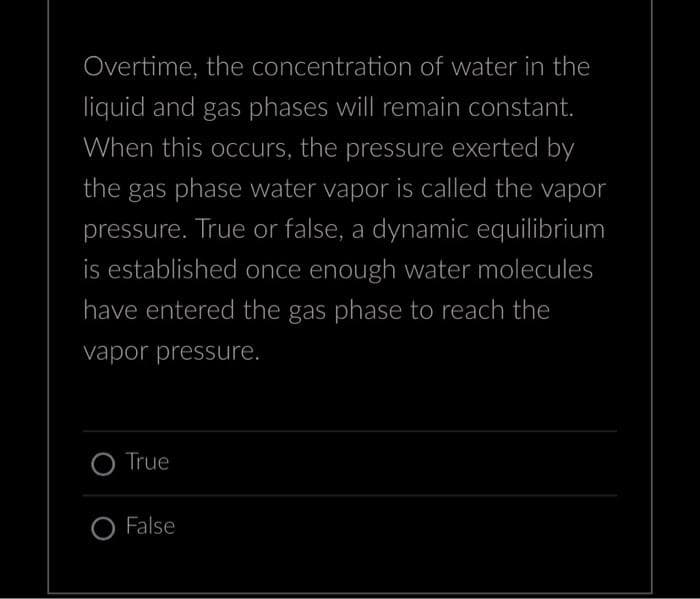Suppose you have a vacuum chamber at room temperature and you place some liquid water inside the chamber keeping it sealed. Which of the following best describes what will happen? The water molecules will remain in the liquid form. O The water molecules will immediately begin to enter the gas phase until all of the water molecules are in the gas phase. O The water molecules will immediately begin to enter the gas phase. As the concentration of gas phase water increases, gas phase water molecules begin to return to the liquid phase. O None of the above
Ideal and Real Gases
Ideal gases obey conditions of the general gas laws under all states of pressure and temperature. Ideal gases are also named perfect gases. The attributes of ideal gases are as follows,
Gas Laws
Gas laws describe the ways in which volume, temperature, pressure, and other conditions correlate when matter is in a gaseous state. The very first observations about the physical properties of gases was made by Robert Boyle in 1662. Later discoveries were made by Charles, Gay-Lussac, Avogadro, and others. Eventually, these observations were combined to produce the ideal gas law.
Gaseous State
It is well known that matter exists in different forms in our surroundings. There are five known states of matter, such as solids, gases, liquids, plasma and Bose-Einstein condensate. The last two are known newly in the recent days. Thus, the detailed forms of matter studied are solids, gases and liquids. The best example of a substance that is present in different states is water. It is solid ice, gaseous vapor or steam and liquid water depending on the temperature and pressure conditions. This is due to the difference in the intermolecular forces and distances. The occurrence of three different phases is due to the difference in the two major forces, the force which tends to tightly hold molecules i.e., forces of attraction and the disruptive forces obtained from the thermal energy of molecules.
Give answer to both part of question


Trending now
This is a popular solution!
Step by step
Solved in 2 steps









